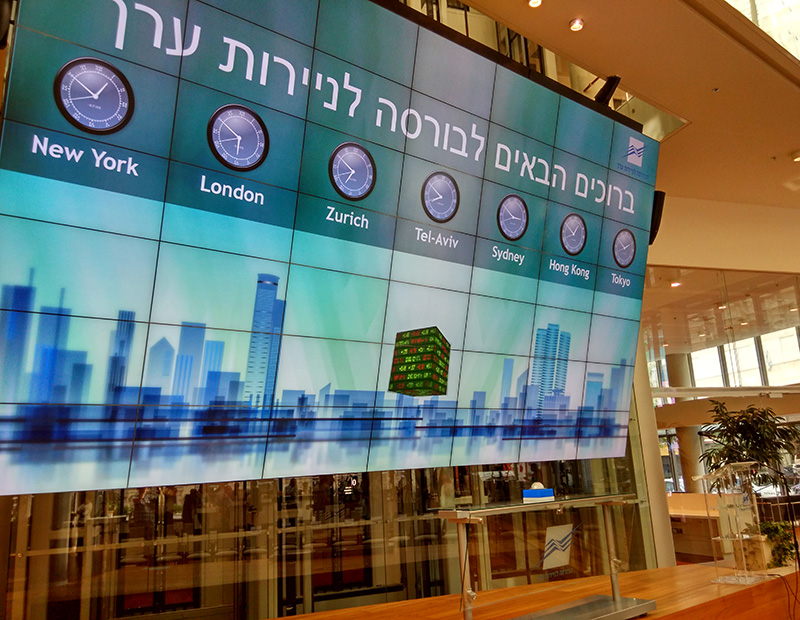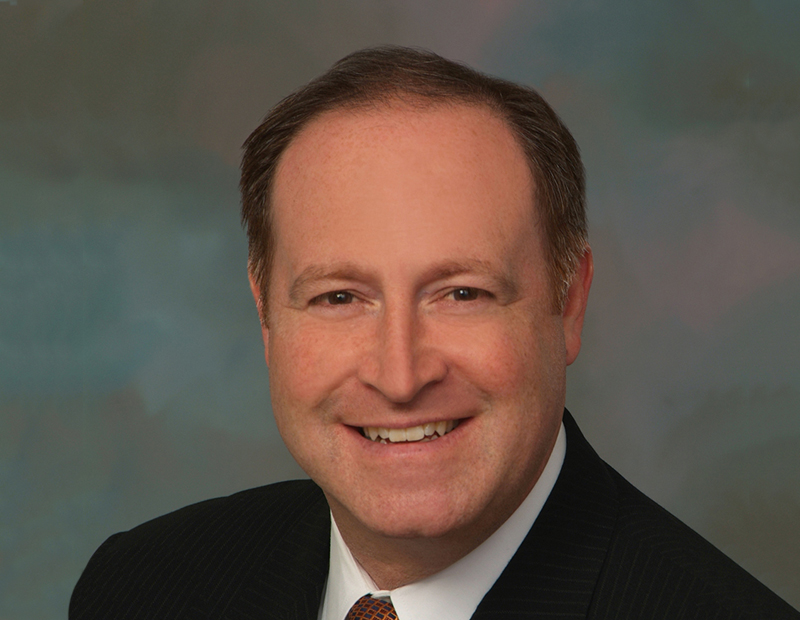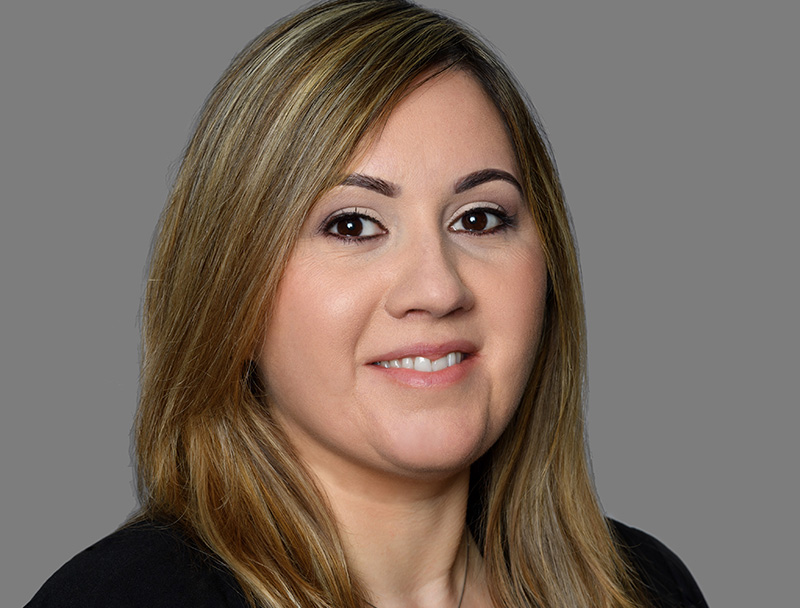Tel Aviv Bond Market Revives, But the Bar Is Higher
As U.S. companies begin issuing on the TASE again, what does it take to have a successful offering? Westdale's recent $140 million bond deal provides some critical clues.

lmage via commons.wikimedia.com
Westdale Asset Management’s recent $140 million bond offering on the Tel Aviv Stock Exchange may signal the comeback of an efficient yet little-used capital source for U.S. real estate companies.
“We could have done this before the end of the year, but because of the turmoil in the market, the market basically stopped and we went on the sideline,” said Stuart Wernick, managing director, Walker & Dunlop, which facilitated the bond offering on behalf of Westdale. “In April, we thought it was the right time.”
Westdale’s offering is significant because it is the first debut of the year in a market that crashed at the end of the 2018, when investors lost confidence in a number of U.S. real estate companies. But it is also a key indication of the sponsor quality, the property types and the structures that the TASE will require of U.S. bond issuers going forward.
“It is still an attractive market, but it is more mature and more sophisticated,” said Elsa Ben Shimon, a commercial real estate partner at Stroock & Stroock who has helped Israeli investors expand their holdings of U.S. real estate. “They are more able to discern different types of products—what is riskier and what is more conservative.”
Shimon said she is aware of a number of other companies that are preparing filings. “Because of what happened, they were standing by and waiting to see what happened with Westdale,” she noted.
Westdale’s Offering
The Westdale bond offering portfolio consisted of 37 properties—27 multifamily communities (8,560 units) and 10 office buildings comprising more than 1.85 million square feet. The properties are located in Georgia, Louisiana, North Carolina, Texas, Virginia and Washington, and the bonds will be secured by three of its Texas assets: Woodmeade Apartments in Irving, The Colannade Office in San Antonio and the Epic office development in Dallas. In addition to retiring debt, the offering was designed to fund the completion of the Epic building in the Deep Ellum section of Dallas, but the property was completed and substantially leased by the time the offering went to market.

Westdale’s Epic office building in Dallas. Image courtesy of Walker & Dunlop
Walker & Dunlop worked in conjunction with Giryes Consulting & Research and Barak Capital, which underwrote, marketed and issued the bonds. Wernick said Westdale went to market to raise 500 million shekels and the offering was oversubscribed two-fold. Investors, he said, were impressed by Westdale’s management team, its leasing capabilities, its deep bench of professionals, and the fact that it has owned its assets for a long time.
“The market was looking for a real estate owner that was best in class,” said Wernick.
Portfolio composition also helped. Multi-family and office assets are very popular with Israeli investors, while retail malls are not. “If we were to go to market with retail today, I think it has to be the right kind of retail, such as grocery-anchored shopping centers and strip centers,” said Wernick.
In additional to the strength of the sponsor and the property types, the fact that the offering was secured by real estate also likely contributed to its success. “There is actually a mortgage to secure a bond,” said Ben Shimon.
While the first debut offering, Westdale is not the first U.S. company issue debt on the TASE in 2019. Silverstein Properties, which raised $175 million in May 2018, went back to the market in February to raise $50 million. And, also in April, All Year returned to raise $20 million.
History of the Market

Stuart Wernick, Managing Director, Walker & Dunlop. Image courtesy of Walker & Dunlop
The Tel Aviv Stock Exchange, which is dominated by bond rather than equity issuers, has been around since roughly 2008—two years after the Israeli government made retirement plan contributions by individuals and employers mandatory. But of the $500 billion that has been amassed, only about $12 billion has been invested in U.S. real estate.
The first users were non-institutional type investors that were willing to take the risk in exchange for the cheaper capital. During the last three or four years, however, more reliable and solid companies—including Related, Lightstone and KBS—have begun to access the market.
“There have been some good, solid companies that have used it over the past few years,” said Wernick.
The market has seen its ups and downs, the most recent occurring at the end of last year when Israeli investors lost confidence in some U.S. companies’ corporate governance and their ability to cover bonds in light of rising interest rates. Bond prices took a nosedive with the Tel Bond Global Index falling 10 percent for the year.
In recent weeks, there have been signs of a recovery, but demand for the bonds is still relatively low, according to Guy Amosi, managing partner of Propertech Assets, a commercial real estate services firm in Israel. Institutional funds in Israel may have the capital to invest in stocks and bonds that can give them higher ROI, but they are still nervous due to the events of six months ago. Meanwhile, more aggressive mutual funds have not raised as much as expected in recent months, so their appetite is also less robust.
“We do see some initial good signs, as the yields are lowering down again with some U.S. players’ bonds, but the market hasn’t totally bounced back,” Amosi observed. “On the other hand, the lowering yields are from low trading volumes and not necessarily representing market recovery.”
Just prior to Westdale’s offering coming to market, bond holders filed a class action suit against Starwood Capital charging that the REIT did not fully report risks associated with the bond backed by seven U.S. malls. The bond had fallen 49 percent in value since issuance.
Opportunities & Risks
In Israel, U.S. bond issuers are able to go to market at better rates and with smaller amounts of debt than they would in the United States (offerings are typically $100-$250 million in Israel vs. $450 million in the U.S.). And, unlike in the U.S. where costs are front-loaded, issuers can pay fees in thirds: some upfront, some at a certain milestone and the rest as delivery happens. And returning to the market quickly—at better pricing—is easier than in the U.S.

Elsa Ben Shimon, Commercial Real Estate Partner, Stroock & Stroock. Image courtesy of Strook & Strook
Westdale, which went to market at 4.80 percent fixed and was trading at at 4.3 earlier this week, could have raised more, Wernicker said. But they decided to do $140 million now and then issue another $100 million to $150 million later.
“Why take the most amount of money upfront when your pricing is going to be higher,” said Wernick, noting Westdale is in the Israel market for “the long haul.”
But this funding source is not for everyone. First, Israeli investors look for companies that are larger―$500 million market cap or higher—which have weathered a number of cycles, are national in breadth, are diversified and have enough cash-flowing properties to support the bond.
“I don’t think we will see portfolios that are just development,” said Ben Shimon. “They need to cover the debt service at the asset level and the portfolio level.”
Second, private U.S. companies need to realize that when they are issuing debt in Israel, it is like going public in the U.S. in terms of regulations—including governance requirements—and financial reporting. Financials need to be converted from GAAP to IFRS (International Financial Reporting Standards) and all documents must be translated into Hebrew. Before undertaking the process, Ben Shimon said, private companies can go to Moody’s or S&P for a non-binding preliminary rating indication.
Companies that are already public in the U.S., however, will have an easier time accessing this debt vehicle. The NYSE and the TASE have reciprocity and no translation is needed.
“For a public REIT in the U.S., going to market in Israel is not going to be that much of a challenge,” Ben Shimon said.







You must be logged in to post a comment.